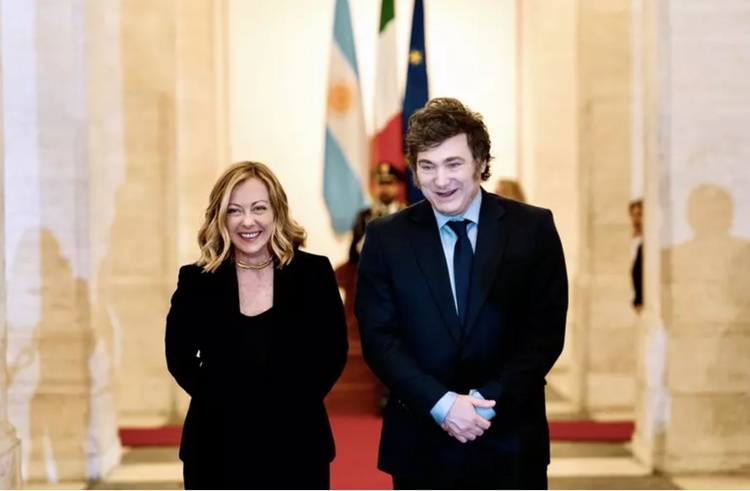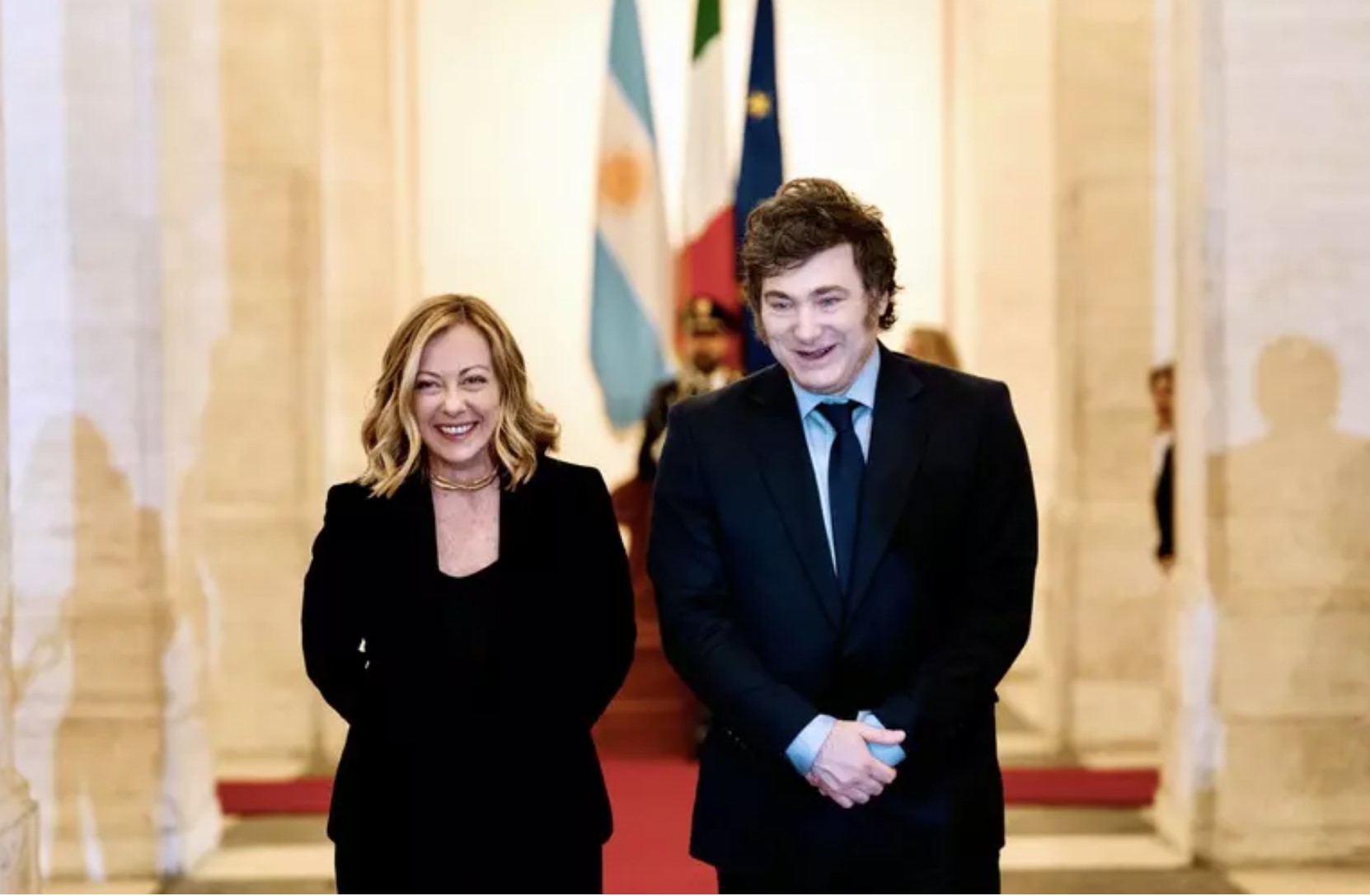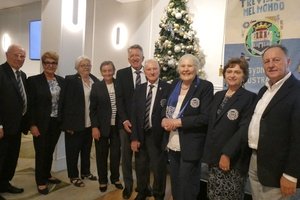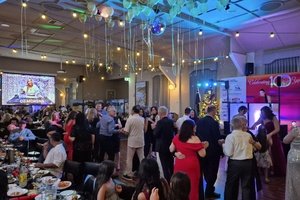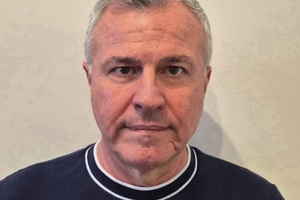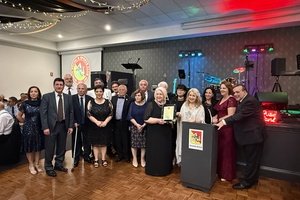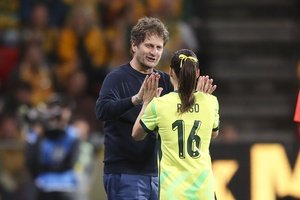Those who knew the announcement was imminent expected it to be made official weeks ago during the visit of Italian Prime Minister Giorgia Meloni to Argentina.
Meloni’s trip paid homage to the shared values “forged in Ancient Rome”, to use Milei’s own words.
The words “Fratelli d’Italia” were used, and not just due to ideological affinity with a political party.
But nothing happened. When asked for confirmation regarding the increasingly persistent rumours, the response was a terse, “I know nothing about it.”
Casa Rosada in Buenos Aires was similarly evasive when questioned on the matter by Il Globo.
Milei’s connection to Italy extends beyond his political alignment with Giorgia Meloni - it is rooted in his heritage. His grandfather was, in fact, a Calabrian immigrant.
It’s far from the first time an Argentinian of Italian descent has held high office in the country. The first was General Manuel Belgrano, born in 1770 to Genoese parents.
The most recent was Mauricio Macri, the grandson of Giorgio Macri, who was born in Aspromonte (Calabria) and emigrated to Argentina after World War II with his three children: Franco (Mauricio’s father), Maria Pia, and Antonino (father of the current governor of Buenos Aires, Jorge).
Mauricio, however, always declared that he did not identify with Italian culture, leaving that role to his cousin Jorge, who, like his father Tonino, has been deeply involved in the Italian community and its institutions, starting with the Italian Hospital.
It is surprising, though, that Javier Milei has never once, in his political career, proudly embraced his immigrant ancestry - not even now, when it might seem appropriate.
Sergio Massa did so during the election campaign, referencing the opportunities offered by the country and its public education to a “son of Sicilian immigrants who is now running for the presidency”.
Jorge Macri, too, regularly attends Italian and Calabrian community events in the capital, recognising the significant voter base they represent.
The fact that an Argentinian president holds an Italian passport fits the foundational myth of a nation built on immigration.
Milei is neither the first nor the last to do so. However, it is the first time an Argentinian president has become an Italian citizen while in office.
There is no legal impediment to this from the Argentine Constitution. Article 89 stipulates that, “To be elected president or vice president of the Nation, one must be born on Argentine soil or, if born abroad, be the child of a native citizen, and meet all other requirements necessary to be elected senator.”
This is not a trivial matter when one considers the implications of citizenship. For one, it involves registration on electoral rolls for Italians abroad. Milei can now vote or even run for political office in Italy once his term ends.
These possibilities raise questions about potential conflicts of interest.
In the meantime, the Milei siblings have already initiated the process of registering (though not yet finalised) with AIRE in San Severino Marche (Macerata), a Renaissance town of about 10,000 inhabitants.
The town has strong ties to Argentina due to the presence of an Italian language school for foreigners, attended primarily by adults and teenagers from South America.
The town, incidentally, granted honorary citizenship in 2022 to Leo Messi, born in Rosario, whose maternal roots trace back to the small town in the Marche region.
Perhaps, during their upcoming trip to Italy, Javier and Karina will stop by for a visit. For the small town, it would be a significant coup, potentially boosting “roots tourism” centred on the two newly minted Italian citizens.

